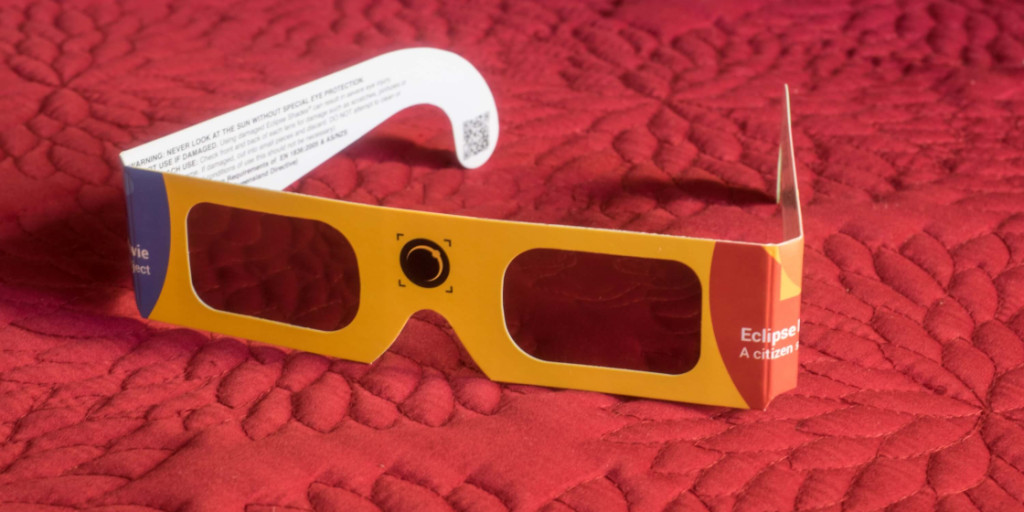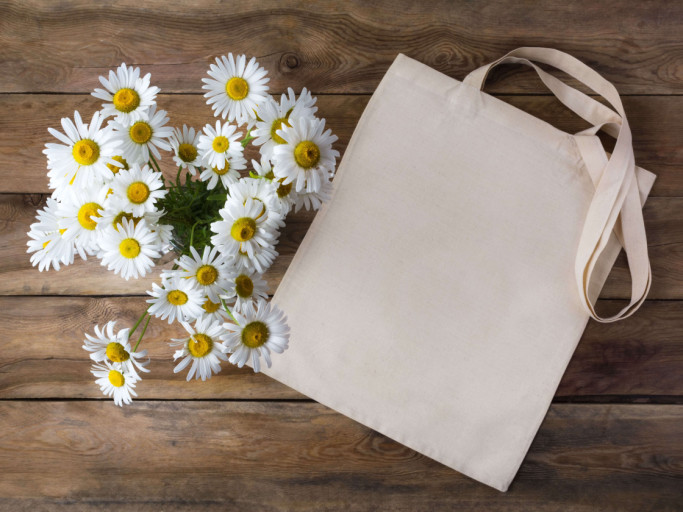Home / Blog / Green & Eco-Friendly / What to Do with Your Solar Eclipse Swag Sunglasses - Recycling Opportunities
What to Do with Your Solar Eclipse Swag Sunglasses - Recycling Opportunities
Date posted: 1st April 2024 in Green & Eco-Friendly
Last updated: 19th April 2024

After the total solar eclipse on Monday, April 8, 2024, that passed over Mexico, 15 U.S. states, and Canada, many are left with their custom solar eclipse glasses. These special glasses, essential for safely viewing the partial phases of the eclipse where the moon blocks the sun almost completely, are now ready for a second life. Here's how you can recycle or repurpose them to reduce environmental impact and continue the excitement of celestial events.
Viewer Engagement and Recycling Opportunities
Companies that distributed custom-branded eclipse glasses leveraged a massive marketing opportunity during the solar eclipse. With over 31 million people in the total eclipse area alone, and many more who traveled to the U.S. to witness the event, these branded glasses were visible on a grand scale. As spectators donned these glasses, they not only protected their eyes but also showcased the sponsoring businesses, sparking conversations and significantly boosting brand recognition during one of the most-watched events in recent history.
Now that the eclipse has passed, the responsibility shifts to both businesses and individuals to ensure that these custom sunglasses for solar events are disposed of responsibly. It's crucial to consider the environmental impact of disposing of these glasses, as they can contribute to waste if not handled properly. Everything Branded is committed to guiding companies and consumers towards sustainable disposal options. They provide information on how to recycle the cardboard frames or donate the glasses for future eclipses, supporting global educational initiatives and helping to minimize environmental impact. This effort not only aids in waste reduction but also aligns with the social responsibility goals of businesses, enhancing their reputation as environmentally conscious organizations.
What to do Now with Your Custom Solar Eclipse Glasses?
1. Donate Your Glasses
Astronomers Without Borders (AWB) is actively collecting used eclipse glasses to redistribute them for educational use in Latin America, in anticipation of the annular eclipse occurring in October 2024.
"This unique program ensures that those who might not otherwise have a safe method to experience the eclipse can do so," explained officials from AWB.
The organization is dedicated to sending glasses globally for outreach programs and is working with partners like the Green Bank Observatory in West Virginia to inspect, store, and eventually distribute these glasses.
Warby Parker, a well-known prescription glasses retailer, is also collaborating in this effort. They are utilizing over 240 of their retail locations throughout the U.S. to gather used eclipse glasses up until April 30, 2024. Additional significant collection points include Vessel Refillery FW in Indiana, Keep Toledo/Lucas County Beautiful and Twinsburg Public Library in Ohio, as well as the Montshire Museum of Science and Chittenden Solid Waste District in Vermont.
2. Recycle Your Glasses
If donation isn't an option, recycling is another way to handle your eclipse glasses responsibly. Unfortunately, the lenses are not recyclable and should be disposed of in regular trash. However, the frames, typically made of cardboard, can be easily recycled. Simply remove the lenses and place the cardboard frames in any recycling bin that accepts paper products.
Why Recycle or Donate?
By recycling or donating your eclipse glasses, you are not only helping the environment by minimizing waste but also supporting educational initiatives that provide safe solar viewing opportunities worldwide. This act extends the life of a simple promotional product to have a lasting, positive impact.
In Summary
Custom solar eclipse glasses are more than just tools for viewing a solar eclipse; they are potent marketing instruments that can continue to benefit communities and the planet. Whether through donation or recycling, you can contribute to a greater cause, enabling others to experience the wonder of our universe safely and sustainably.
References:
- Astronomers Without Borders. Learn more about their Solar Glasses Distribution Program at Astronomers Without Borders.
- Eclipse Glasses USA. For information on how to donate your eclipse glasses, visit Eclipse Glasses USA Donation Page
- Time Magazine. Read more about what to do with your solar eclipse glasses in the article "What to Do with Your Solar Eclipse Glasses" available at Time.
- University of Rochester. For recycling information on eclipse glasses, check out the University of Rochester Eclipse Info.
- Solar eclipse of April 8, 2024. Find out facts regarding the April Solar Eclipse here. Wikipedia
- Additional sources on recycling and donating eclipse glasses can be found at Fast Company, CNN, Scientific American and Warby Parker Help Page.
Places to Recycle:
- Astronomers Without Borders – Nationwide.
- Montshire Museum of Science and Chittenden Solid Waste District – Vermont.
- Warby Parker – Nationwide.
- Keep Toledo/Lucas County Beautiful – Ohio.
- Vessel Refillery FW – Indiana.
- Green Bank Observatory – West Virginia.
- Twinsburg Public Library – Ohio.

Strengthen your brand perception with promotional products
Chat online or call us today on 1800-586-1615
More Articles

Empowering Communities: Celebrating Fair Trade Day with Custom Tote Bags
1st October 2023 in Green & Eco-Friendly

What to Do with Your Solar Eclipse Swag Sunglasses - Recycling Opportunities
1st April 2024 in Green & Eco-Friendly

Case Study: Why Choose Custom Tote Bags
21st August 2022 in Green & Eco-Friendly

De-stress with Desktop Gardens
20th March 2019 in Green & Eco-Friendly

